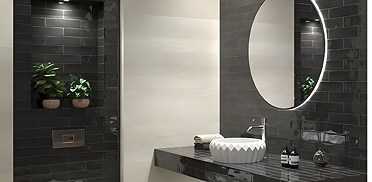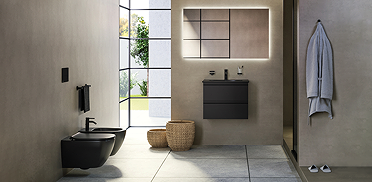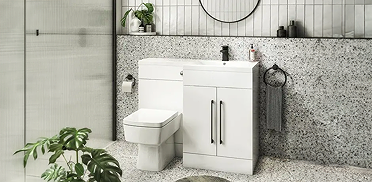Grab Up To 60% Off In Our February Sale!
Free delivery on orders over £499*
What Is a WC, Really? Water Closet Meaning, Origins and Modern Uses
What Is a WC, Really? Water Closet Meaning, Origins and Modern Uses
“WC” is the neat label you’ll still see everywhere on toilet doors. Here’s where it came from, how it’s used today, and the modern WC toilet styles to know.
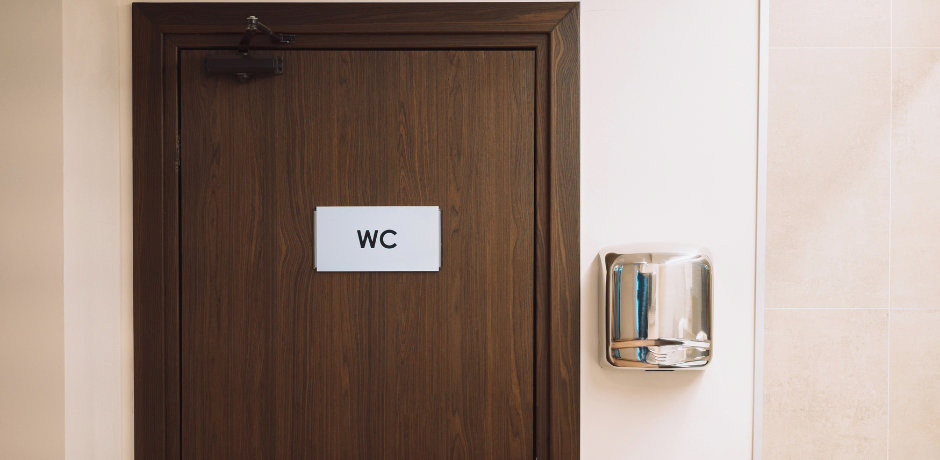
What does WC mean? In everyday UK English, WC is shorthand for water closet - a polite way of saying toilet. You’ll see it on floor plans, in estate agents’ listings, and on product names like WC pan or back-to-wall WC. If you’ve ever wondered whether a water closet toilet is different from a WC toilet (it isn’t), or why the term still appears everywhere, this guide has you covered.
WC Meaning: The Quick Answer
WC stands for water closet. Historically it referred to a small room fitted with a flushing toilet and a water supply; today it simply means toilet. The abbreviation endures because it’s short, clear on technical drawings, and widely understood across Europe - handy on signs, packaging and product specs.
A Short History of the Water Closet
Indoor flushing loos arrived long before the name became common. As plumbing spread through Victorian and Edwardian homes, the toilet was often tucked into its own narrow cubby with a high cistern and pull chain. That compact room, the water closet, gave us the term WC. The name stuck, even as bathrooms got bigger, cisterns dropped lower, and design moved on.
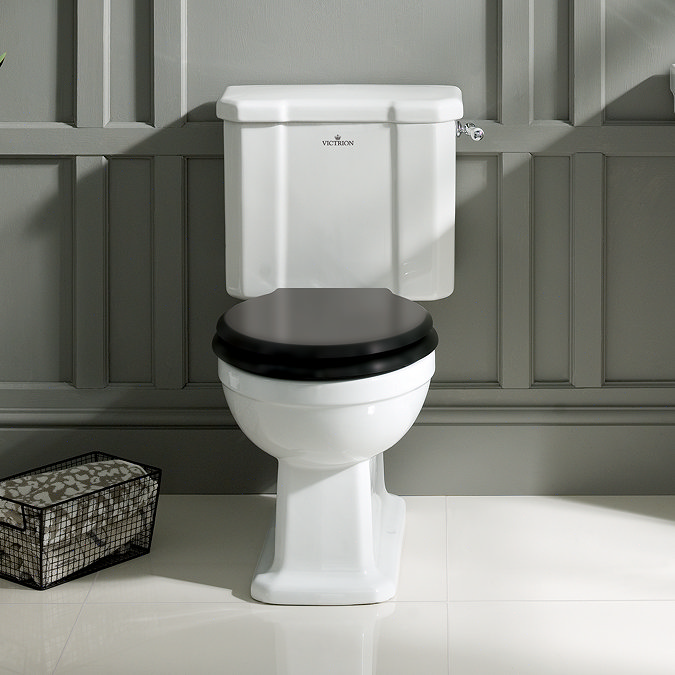
Where You’ll Still See “WC” Today
You’ll meet WC in a few familiar places. On floor plans and estate listings, it labels a toilet room at a glance - especially useful in small cloakrooms where there’s no bath or shower. On public signage, it’s a concise way to point to facilities across language barriers. In product names, it distinguishes the toilet itself (the WC pan) from seats, frames and cisterns. You may also see it in planning and building notes, where consistency matters.
WC vs Bathroom vs Cloakroom (And Other Terms)
In UK usage, bathroom usually means a room with a bath and/or shower. A cloakroom is typically a compact downstairs loo - often just a WC and small basin. Toilet is the everyday word; lavatory is more formal; restroom is American; loo is chatty and very British. All perfectly acceptable, but WC remains the neutral, technical label you’ll spot in specs and on drawings.
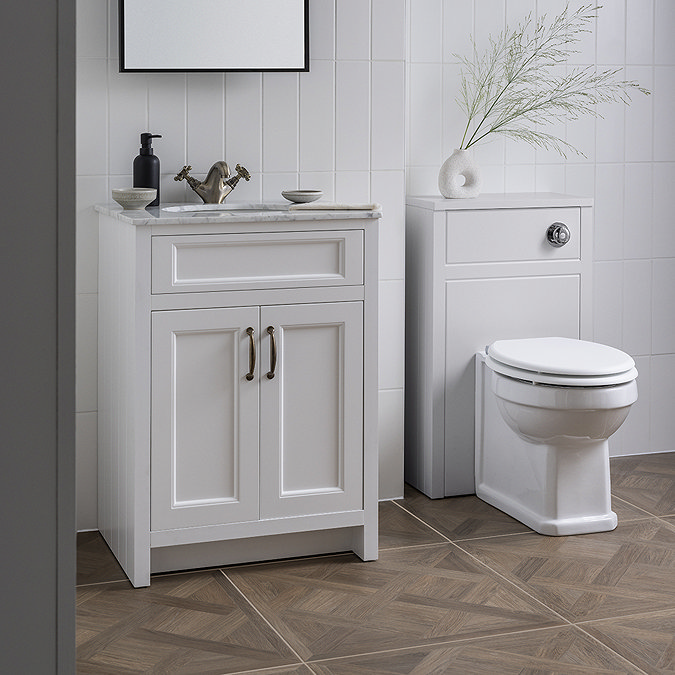
Types of Modern WC Toilets (And Why They Matter)
Not all WCs are built the same. Here’s how the common styles look, feel and function in a modern home:
Close-Coupled WC
The cistern sits directly on the back of the pan, forming one tidy unit. It’s familiar, budget-friendly and easy to install or replace. In a family bathroom or rental, it’s the safe, simple choice.
Back-To-Wall WC
The pan sits against the wall while the cistern hides inside furniture or a concealed cavity. The result: clean lines, less visible pipework and easier floor cleaning. Great for minimal schemes and small cloakrooms where visual calm matters.
Wall-Hung WC
The pan mounts on a strong metal frame inside the wall, floating above the floor. This creates a lighter, more spacious look and makes mopping a breeze. It demands solid installation but rewards you with serious modern style.
Helpful options across styles
- Rimless bowls wash more effectively and leave fewer places for germs to lurk, so cleaning is faster.
- Dual-flush cisterns cut water use without fuss.
- Short-projection pans save precious centimetres in tiny WCs.
- Comfort-height seats make life easier for taller folks, older adults and anyone with limited mobility.
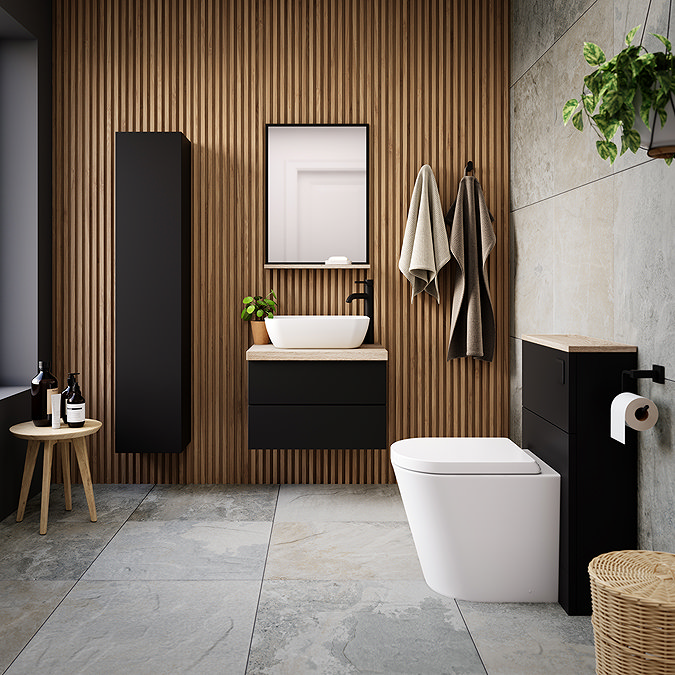
“WC” vs “W/C”: The Easy Mix-up
Context matters. On calendars, quotes or project plans, w/c almost always means “week commencing” (for example, w/c 14 October). In bathrooms, WC means water closet. If you’re reading a schedule and see w/c, it’s not a note about toilets - it’s a date.
Choosing the Right WC for Your Space
Start with how the room’s used. A busy family bathroom needs durability, readily available spares and a seat that stands up to everyday life. A downstairs cloakroom benefits from short-projection pans and compact basins to keep it feeling open. For a sleek en-suite, conceal the cistern or go wall-hung for that hotel look. Whatever you choose, pair your WC with a soft-close seat (quieter nights, fewer pinched fingers) and keep the finish consistent with taps and hardware so the whole space reads as one.
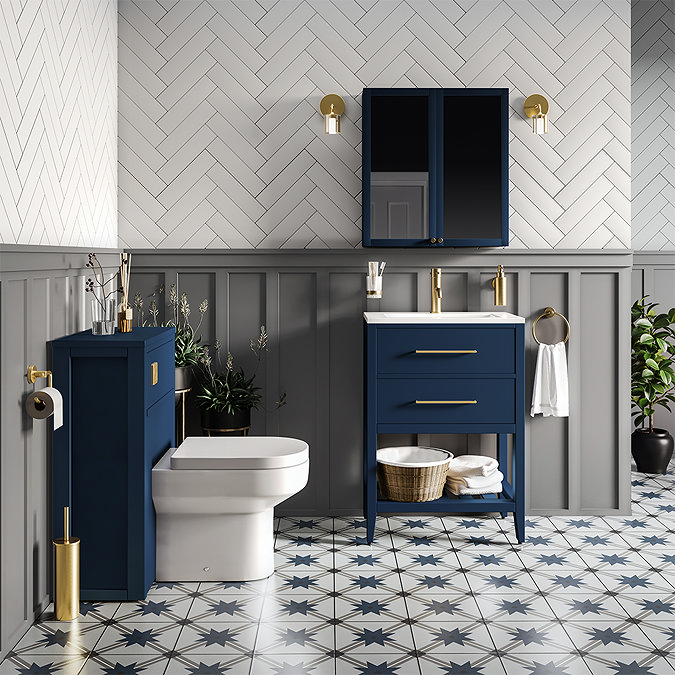
Care, Cleaning and Small Wins
Modern glazes and rimless designs have made upkeep easier. Use non-abrasive cleaners, wipe the underside of the seat and hinges regularly, and give the flush plate or handle a quick buff - fingerprints show faster than you’d think. If water spots bother you, a once-over with a microfibre cloth after deep cleans keeps ceramic gleaming.
Quick FAQs
What does WC stand for?
Water closet. It’s the formal/technical abbreviation for toilet.
Is a WC different from a toilet?
No - WC is simply another name for a toilet. The pan is the ceramic bowl; the cistern holds water for the flush.
Why do floor plans say WC instead of toilet?
It’s concise, standardised and understood across markets - useful in drawings with tight space.
Is “water closet” old-fashioned?
The phrase is historic, but the abbreviation WC is very current in specifications, signage and product descriptions.
What’s the best WC for a small cloakroom?
A short-projection, close-coupled or back-to-wall WC saves space and looks neat. Pair with a compact basin and a slim vanity.
The Takeaway
If you’ve ever wondered about the meaning of WC, now you know: it’s the straightforward, technical way to say toilet. From close-coupled staples to sleek wall-hung styles, today’s WC toilets are designed to fit your space, your routine and your aesthetic. Choose the format that suits your room, add the smart features that make life easier, and enjoy a bathroom that feels cleaner, calmer and unmistakably yours.
Looking for more bathroom know-how? Explore our guides, compare styles, and share this with anyone who’s ever asked, “What does W/C actually stand for?”

Jack
Jack is part of the resident bathroom bloggers team here at Victorian Plumbing. As a bathroom décor and DIY expert, he loves writing in depth articles and buying guides and is renowned for his expert 'how to' tutorials.
